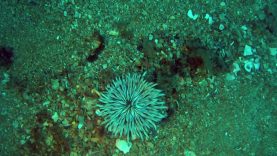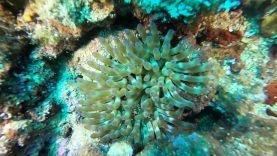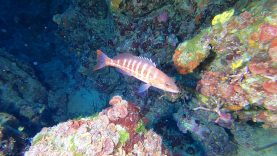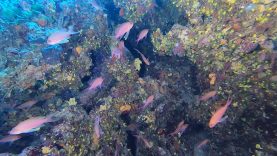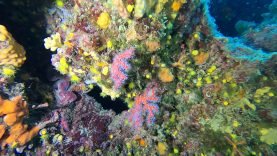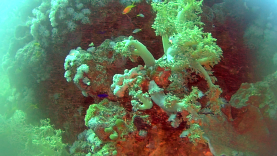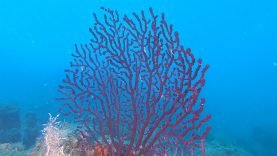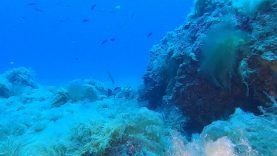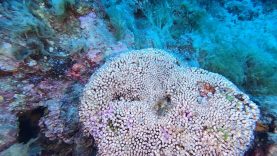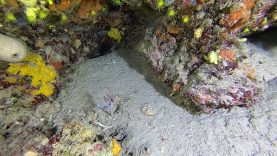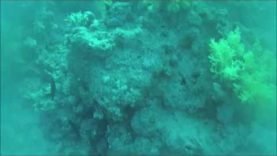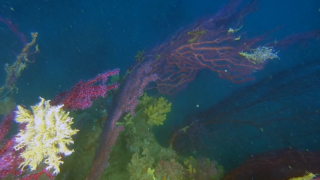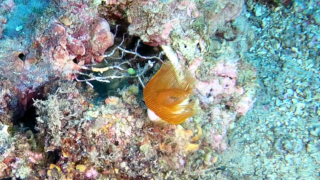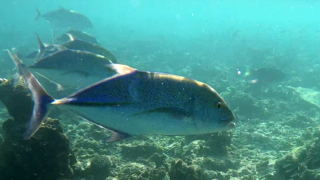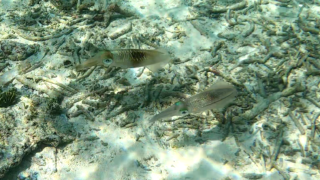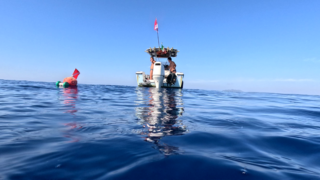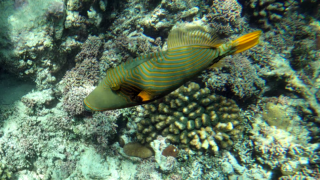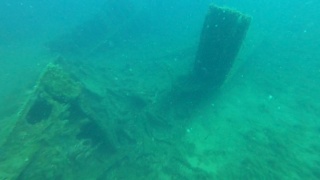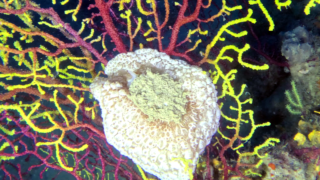Yellow Soft coral - Dendronephthya hemprichi
Dendronephthya hemprichi is a common soft coral found from Red Sea to WesternPacific. It is usually pink or orange with transparent trunk and it grows up to 70 cm. It exists at 30° N latitude. The smallest unit of this coral, like all other corals, is a polyp. This particular species of the Dendronephthya has the ability to reproduce sexually and asexually through broadcast spawning and clonal propagation, respectively. dendronephthya-hemprichi-intotheblue.it
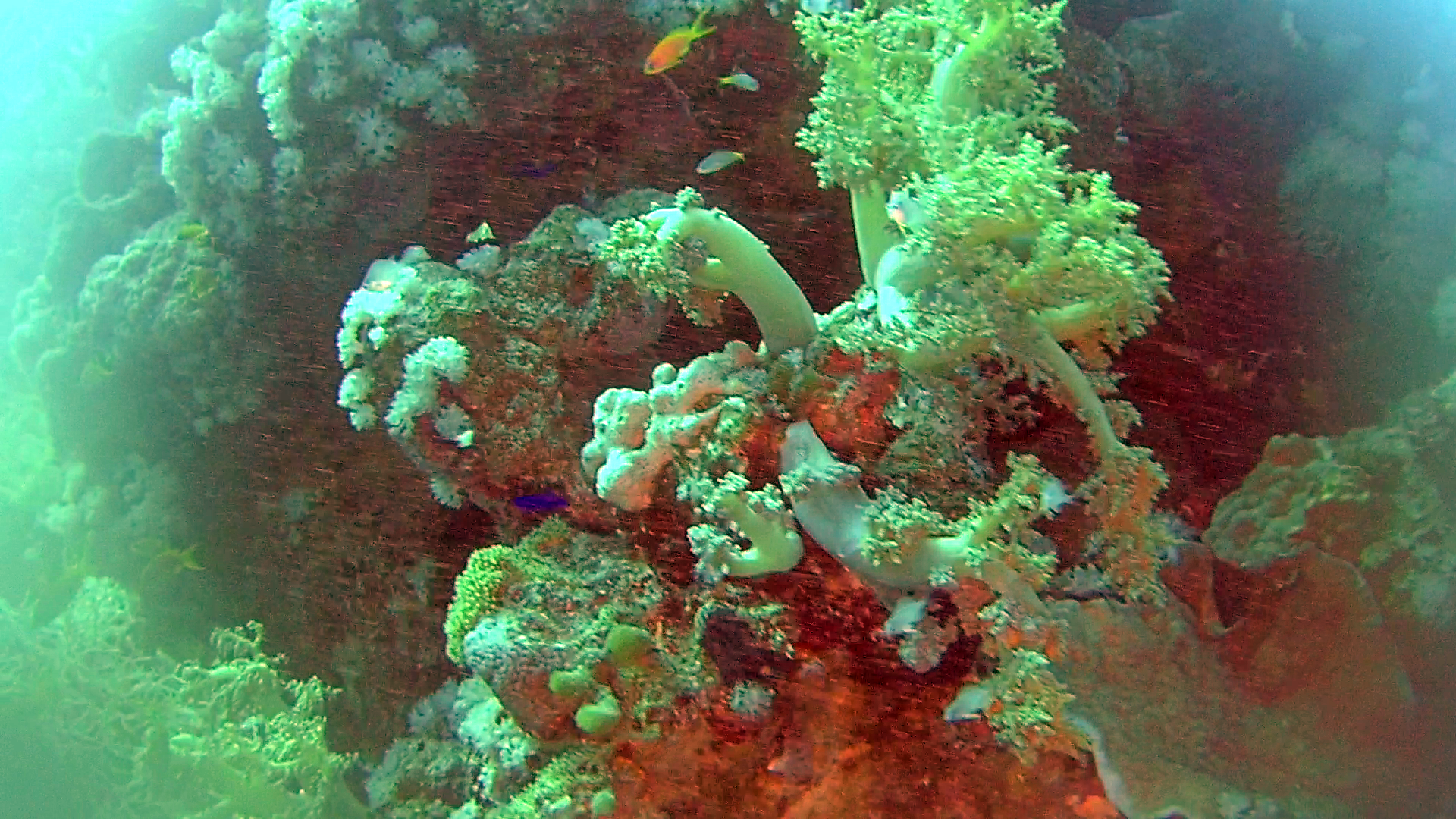
Dendronephthya hemprichi ingests phytoplankton through the process of passive suspension filter feeding. The anatomy of each polyp plays a role in optimizing the coral’s ability to filter nutrients. As an octocoral, each polyp contains eight tentacles with pinnules lining the tentacles, thus increasing surface area to maximize filtration.The use of phytoplankton by this species as its main energy source was determined through fluorescence microscopy, measurement of phaeopigments levels, and observation of phytoplankton accumulation in the gut of starved Dendronephthya hemprichi.
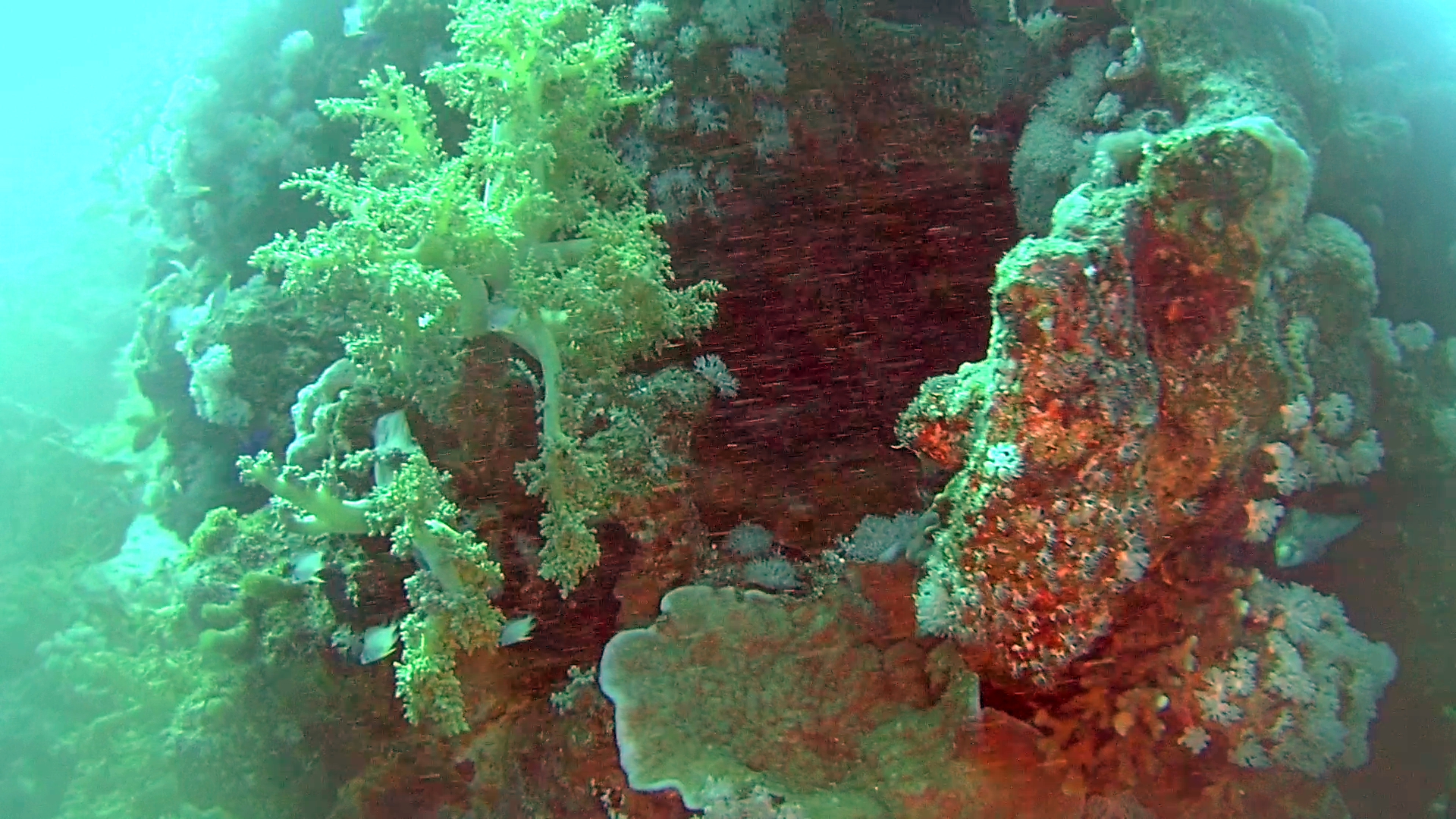
As catabolites of phytoplankton, phaeopigments are used to measure the amount of phytoplankton digested by the coral. Fluorescent microscopy verifies the presence of the phytoplankton, while the accumulation of phytoplankton in starved Dendronephthya hemprichi and subsequent increasing levels of phaeopigments determine that phytoplankton is being consumed and digested. Furthermore, the depletion of phytoplankton concentrations in water currents downstream of Dendronephthya hemprichi colonies also support the energetic pathway designating phytoplankton as the main source of energy for Dendronephthya hemprichi. dendronephthya-hemprichi-intotheblue.it
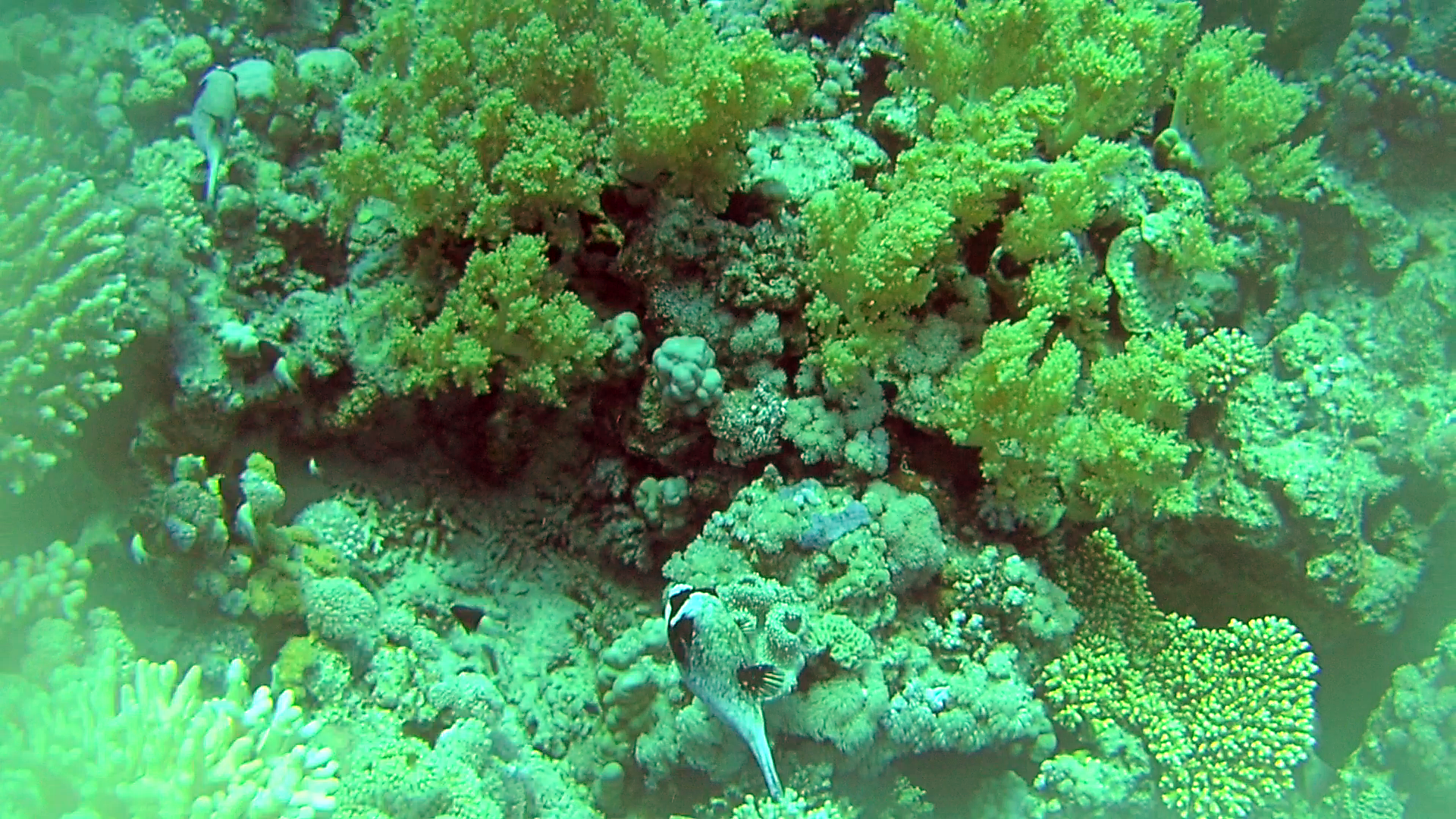
Dendronephthya hemprichi is found on steep slopes between 1–32 meters of the benthic zone in the Red Sea. This depth is prone to strong currents generated by wind on the surface of the water. In addition, another Dendronephthya species, Dendronephthya sinaiensis, also exists between 11–32 m. In this case, Dendronephthya sinaiensis has longer and denser pinnules limiting its consumption to consume smaller phytoplankton. In addition, Dendronephthya hemprichi has larger sclerites that form its exoskeleton, causing it to be less flexible in behavior. The differences in sizes of pinnules and sclerites of these two species support Gause’s theory of niche partitioning.
(extract from Wikipedia)

